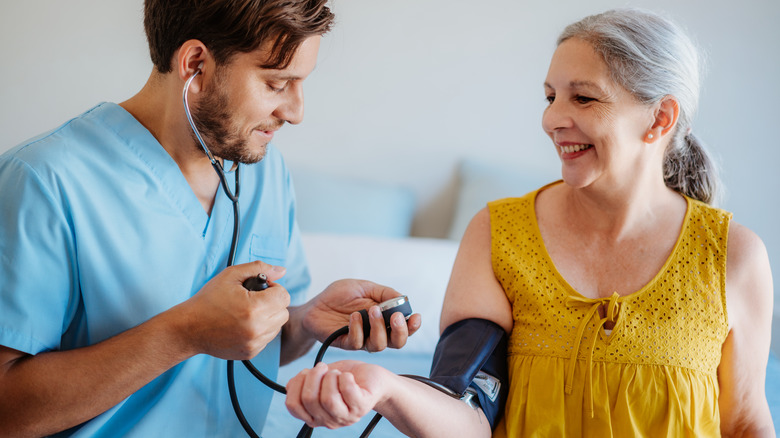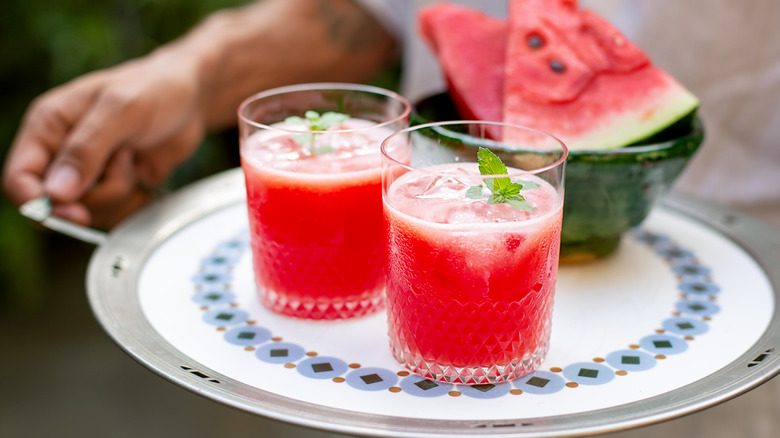Drink More Watermelon Juice And You Might See A Change In Your Blood Pressure
As if you needed another excuse for downing some watermelon juice, it turns out that the naturally sweet beverage may do your cardiovascular system some good. (Watermelon juice is also a powerful drink to combat prostate cancer.) And it's all thanks to a nutrient found in the fruit that's behind this pink drink.
Watermelon contains L-citrulline, an amino acid that your body makes on its own. However, adding more L-citrulline into your diet through foods and supplements isn't generally harmful if you're under the care of a health professional. In fact, upping your L-citrulline levels might be helpful if you struggle to control your blood pressure.
For instance, a 2022 study in Antioxidants explored the use of L-citrulline to mitigate the effects of high blood pressure due to obstructive sleep apnea in rats. After two weeks, the rats that received L-citrulline supplementation showed a significant decrease in their blood pressure levels. Findings from a 2019 review in Avicenna Journal of Phytomedicine also indicated potential cardioprotective powers of L-citrulline.
That said, the greatest impact of L-citrulline seemed to be on systolic blood pressure versus diastolic blood pressure readings. According to a 2021 article in Hypertension, systolic blood pressure numbers remain strong indicators of a person's potential for death due to a cardiovascular event. Therefore, being able to lower systolic measures through the consumption of L-citrulline products (like watermelon juice) may concurrently lower the risk of dying from a heart-related condition.
Drink watermelon juice in moderation for your blood pressure
Just how much L-citrulline can you expect to get in every glass of watermelon juice that you drink? It depends on the amount. For instance, a liter of watermelon juice offers about 2.33 grams of L-citrulline. But a liter is a little more than 33 ounces. And that's a lot of watermelon juice — not to mention sugar.
For example, a cup of fresh watermelon juice promises 19 grams of sugar. Given that the World Health Organization (WHO) recommends keeping your daily intake of free sugars, which includes those found in fruit juices, to less than 10% of calories (around 50 grams on a 2,000-calorie diet), that's a lot of sugar if you're planning to sip 33 ounces of watermelon juice to get extra L-citrulline. Additionally, the WHO advises that keeping free sugars under 5% of daily calories (around 25 grams) would be even better for health.
Besides, eating excessive amounts of sugar can raise your blood pressure, so you may want to eat other, less sugary foods that are also rich in L-citrulline alongside your sweet treat. Some good picks include cucumbers (one cup contains 1.64 grams of sugar) and pumpkin (one cup of cooked pumpkin promises 5.1 grams of sugar). In addition, you may want to alternate your watermelon juice with other juices known to lower blood pressure (e.g., carrot and tomato) for the same result but with nutritional variety.

